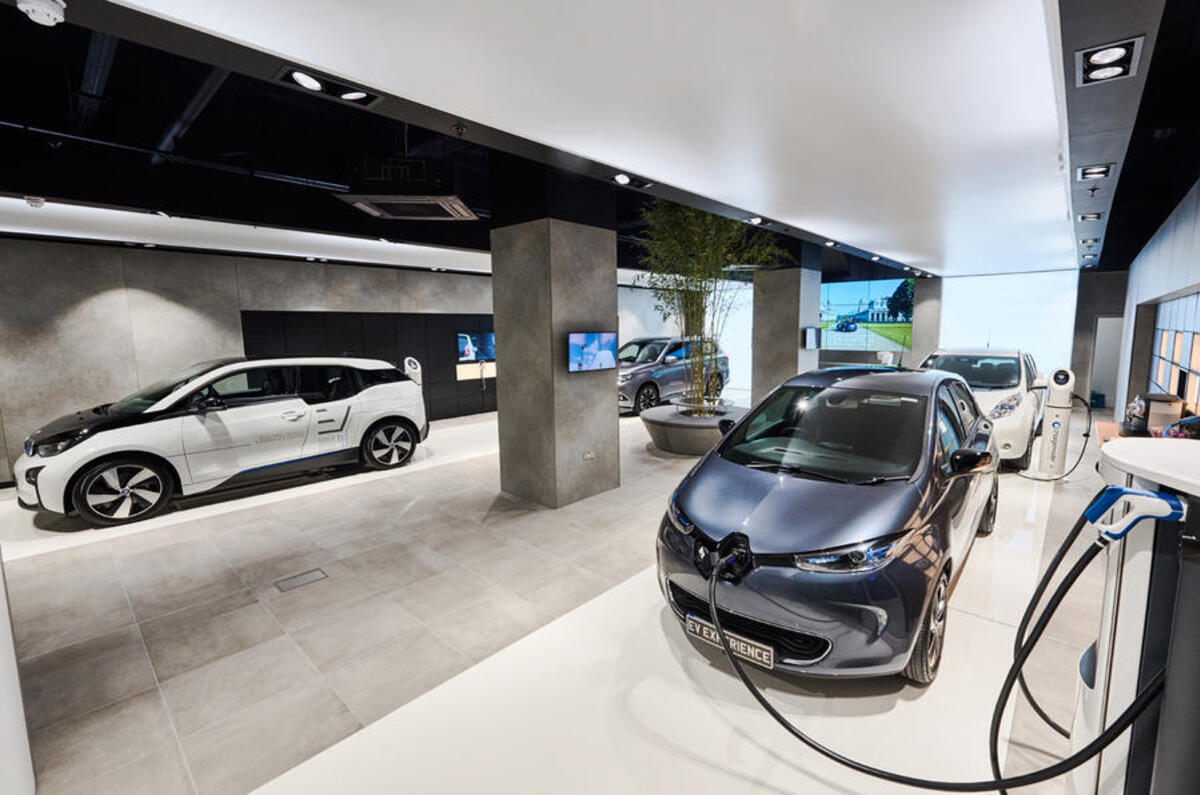The Society of Motor Manufacturers and Traders (SMMT) has called on the UK government to offer greater incentives to encourage private buyers to swap to electric cars as part of a new ‘blueprint’ to guide the switch to EVs.
The call for greater incentives, which comes shortly after the UK government cut the plug-in car grant for EV buyers, is based on new SMMT research showing that business and fleet buyers are twice as likely to switch from petrol and diesel to electric vehicles.
To receive the latest industry news, please click here to sign up to the Autocar Business newsletter
According to the SMMT, private buyers registered 34,324 battery-electric vehicles (BEVs) last year – 4.6% of the private car market – compared with the 73,881 brought by fleets and businesses, representing 8.7% of the total vehicles bought by firms. Currently, businesses and company car drivers are offered more incentives than private buyers to switch to EVs, due to the saving on reduced purchase taxes.
The SMMT believes that preserving plug-in car grants and providing consumer VAT exemption could increase EV uptake by almost two-thirds by 2026, and it has also called on both the government and stakeholders to address the concerns of private buyers by committing to a major expansion of public charging infrastructure.
The UK is due to ban the sale of all non-zero-emission cars by 2035, with only emission-free machines and hybrids capable of a significant level of emission-free running allowed after 2030. The new SMMT blueprint is designed to help guide the industry transition to that date and was launched at the SMMT Electrified summit.
SMMT chief executive Mike Hawes said: “While last year’s bumper uptake of electric vehicles is to be welcomed, it’s clear this has been an electric revolution primarily for fleets, not families.
“To deliver an electric revolution that is affordable, achievable and accessible to all by 2030, government and other stakeholders must put ordinary drivers at the heart of policy and planning. We need incentives that tempt consumers, infrastructure that is robust and charging points that provide reassurance, so that zero-emission mobility will be possible for everyone, regardless of income or location.”
READ MORE
Government cuts electric car grant from £3000 to £2500
The road to 2030: an Autocar special guide
Which electric cars no longer qualify for a grant in the UK?








Join the debate
Add your comment
Add to this the lack of a reliable and decent charging infrastructure outside of cities and I can see why many are still reluctant to own an EV.
From a taxation and govt coffers point of view, is there any difference between the govt 'paying' a contribution towards the price and reducing the VAT?
I really want an EV, but am currently in the position where the BEVs I could afford dont offer enough range, and those that offer enough range are beyond my budget, which I suspect is the same for many would be adopters at this time.
The key is to use tax payers money to assist the tax payer without the manufacturers inflating the costs of EV's to profit from Gov assistance.
The other report suggesting 0 percent Apr loans for EVs is also a reasonable idea, but nothing helps those that can't afford new get into a zero emissions car. If however public charging infrastructure was dramatically improved, then maybe more used EVs, that have a lower range, would become more viable to more.
Truth be told, I don't have an answer, I just don't necessarily think that the government should be supporting the wealthy to have lower costs than the poor who have to face increasing fuel.costs etc in order to just get to work.
i have owned an i3 for nearly 18 months. I live in a second floor flat. While I do have an allocated parking space there are no charge points where I live. But I have never once spent several hours searching for an available charge point. Never. Once.
People need to quit with this hyperbole and imagined attempts at pretending things are worse than they actually are. Does more need to be done, sure, but how things are now is not, and never has been, an indicator of the future. It's almost as if there's been no reporting or informing on the subject of roll out of charging infrastructure.
At least the "grid won't cope" nonsense seems to have gone away.
I live in a Victorian street in Kent with no possibility of charging a car. There are two chargers in a car park which are two slow to top up a car plus there are parking fees. That's my lot. The nearest Tesla supercharger is 30 minutes the wrong way. So it would take well over an hour to charge up a 3. We do 20k a year. It's impractical to run any kind of EV with the current infrastructure as I'd spend my life trying to find a fast charger. At present I get 500+ miles out of a Prius. That's one 5 minute fill up.
There needs to be serious investment in a high speed charging infrastructure if EV is to become a reality.